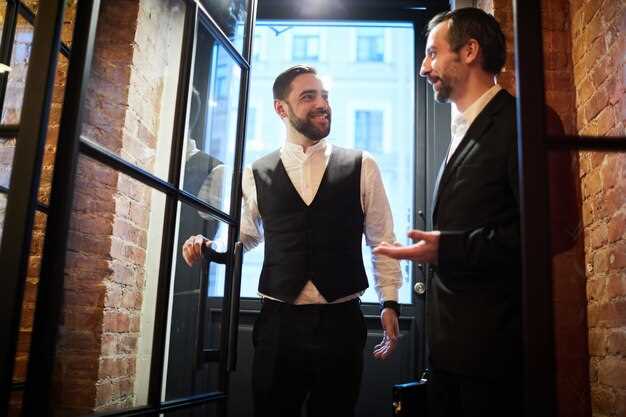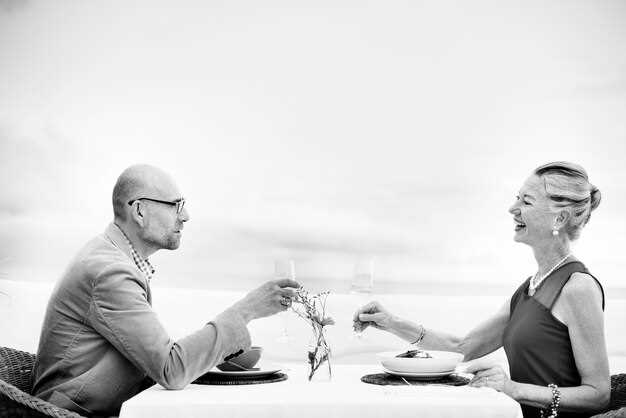
In the ever-evolving landscape of professional connections, the debate between classic and modern networking events has become increasingly relevant. As businesses and individuals seek to cultivate relationships that can foster growth and collaboration, understanding the advantages and disadvantages of each approach is essential. Classic events, such as conferences and formal meetups, have long been favored by seasoned professionals and industry veterans. They offer a structured environment where fans of a particular field can exchange insights, explore opportunities, and establish lasting connections.
On the other hand, modern networking events have transformed the way we engage with one another. Utilizing digital platforms, social media, and innovative formats, these events cater to a new generation of networkers who thrive on flexibility and creativity. Fans of technology and entrepreneurship often find themselves drawn to informal gatherings, webinars, and virtual meet-and-greets, where the barriers of distance and formality are diminished. The question remains: which type of event yields better results for building meaningful professional relationships?
This article aims to delve into the distinctive features of classic and modern networking events, exploring their impact on relationship-building and success. By examining the perspectives of various professionals, we can determine which approach ultimately best serves the diverse needs of today’s networkers. Join us as we navigate this intriguing comparison, uncovering the strengths and limitations of each style of networking event.
Classic vs Modern Events for Networking: Which is Better for Car Fans?
When it comes to networking opportunities for car fans, both classic and modern events offer unique advantages. Classic car shows typically emphasize the nostalgia and traditions of automotive culture. These events create an intimate atmosphere where enthusiasts can share stories, swap parts, and connect over a mutual appreciation for vintage vehicles. Networking at classic events often feels more personal, as attendees have time to engage in meaningful conversations about restoration techniques, historical models, and personal experiences with their cars.
On the other hand, modern networking events leverage technology and contemporary platforms to connect car fans. These gatherings often include interactive experiences, workshops, and social media integration, allowing enthusiasts to meet online and offline. Modern events may feature speakers from the automotive industry, providing insights into the latest trends, innovations, and advancements in vehicle technology. This aspect can attract a diverse crowd, including young car enthusiasts eager to learn about the future of the automotive world.
Each type of event appeals to different segments of the car fan community. Classic events resonate with those who value history and craftsmanship, while modern events attract fans who are excited about the evolution of automobiles. Ultimately, the choice between classic and modern networking opportunities depends on individual preferences and what kind of connections car fans aim to foster.
Understanding the Audience: Who Attends Classic vs Modern Events?

Understanding the audience is crucial for the success of any networking event. Classic events often attract traditionalists and professionals who value face-to-face interactions and long-established practices. These individuals typically include industry veterans, business leaders, and seasoned entrepreneurs. They appreciate opportunities to network over a cocktail or during formal dinners, where deep conversations can take place. Fans of classic cars, for instance, might attend an auto show where vintage vehicles are showcased, enjoying discussions about craftsmanship and heritage.
On the other hand, modern events are tailored for a younger, tech-savvy demographic that thrives on innovation and speed. Attendees of these gatherings often include millennials and Gen Z professionals who prefer casual environments with interactive elements. They might be more inclined to participate in networking through apps or online platforms. Fans of modern car technology, such as electric vehicles or smart features, are likely to gravitate towards events highlighting cutting-edge designs and sustainable practices.
While classic events foster a sense of nostalgia and emphasize relationship-building, modern events offer dynamic experiences and rapid networking. Recognizing these audience differences is key to curating experiences that resonate with attendees, ensuring that both events meet their unique expectations and preferences.
Key Differences in Networking Opportunities at Classic and Modern Car Events
Classic car events often foster a sense of nostalgia and community among participants. Attendees typically share a passion for vintage automobiles, leading to deeper conversations about restoration processes, historical significance, and personal stories related to their vehicles. This environment encourages connections that are rooted in shared interests, and networking often happens organically as enthusiasts admire each other’s cars.
On the other hand, modern car events frequently focus on innovation and the latest automotive technologies. Here, networking opportunities may be driven by professional interests, such as industry trends, partnerships, and collaborations. Participants often include not only car enthusiasts but also professionals, manufacturers, and marketers looking to exchange ideas on cutting-edge developments. This environment promotes strategic discussions and may lead to business connections that can advance careers or projects.
Another critical difference lies in the event structure. Classic car events might include informal gatherings, shows, and exhibitions that allow ample time for socializing and networking during casual interactions. In contrast, modern car events may incorporate structured seminars, workshops, and panels that facilitate focused networking sessions. These formats can create opportunities for targeted discussions but may limit spontaneous interactions.
In terms of demographic diversity, classic car events tend to attract a more seasoned crowd with decades of automotive experience. This depth of knowledge can lead to mentorship opportunities for younger enthusiasts. Conversely, modern car events often bring together a younger audience eager to learn about the future of the industry, which can inspire collaborations that bridge generational gaps.
Ultimately, the choice between classic and modern car events for networking purposes depends on individual goals. Classic car events offer rich, personal connections and shared histories, while modern car events provide a platform for forward-thinking discussions and professional networking.
How Venue Choice Influences Networking Success: Classic Locations vs Modern Spaces
Venue choice plays a crucial role in the success of networking events, affecting attendee engagement and interaction. Classic locations, such as historic hotels or traditional conference centers, often evoke a sense of professionalism and familiarity. These settings can create a formal atmosphere that encourages serious discussions and meaningful connections. Fans of traditional events may argue that these venues provide a polished backdrop that helps establish credibility and formality among participants.
On the other hand, modern spaces like co-working hubs or trendy lofts offer a different dynamic. These venues are usually designed with creativity and collaboration in mind, fostering a relaxed environment conducive to open conversations. Attendees in such locations are often more willing to engage in casual networking, which can lead to innovative ideas and partnerships. Fans of modern events appreciate the flexibility and vibrant ambiance these spaces provide, promoting networking through informal interactions.
The choice between classic and modern venues ultimately influences the type of attendees who participate and the quality of interactions that occur. Classic locations might attract more traditional industry professionals seeking formal networking opportunities, while modern spaces might draw younger, more innovative thinkers eager to disrupt conventional approaches. Understanding the audience and the goals of the event is essential for selecting the most effective venue, as this choice can significantly shape the overall networking experience.
Engagement Strategies: Traditional Networking vs Digital Platforms at Car Events
Engagement strategies at car events play a pivotal role in connecting fans and businesses. Traditional networking methods, such as in-person meetups and car shows, foster a sense of community among enthusiasts. Attendees can bond over shared interests, making face-to-face interactions invaluable. These gatherings allow fans to exchange insights, discuss modifications, and showcase their vehicles, creating a vibrant atmosphere filled with passion.
Moreover, traditional networking provides opportunities for brands to interact with consumers directly. Booths displaying the latest models, merchandise, and innovations encourage hands-on experiences. Engaging activities, such as contests or Q&A sessions with industry experts, enhance audience involvement, leaving lasting impressions on attendees.
On the other hand, digital platforms have transformed the landscape of networking in the automotive world. Online communities, social media, and virtual events allow fans from around the globe to connect instantly. These platforms facilitate discussions, enabling users to share their automotive experiences without geographical limitations. Brands can leverage social media to reach a broader audience, showcasing their products through targeted advertising and engaging content.
Furthermore, digital platforms offer analytics to measure engagement and track interactions. This data provides insights into customer preferences, helping businesses tailor their marketing strategies effectively. Live streaming of car events also allows fans who cannot attend in person to join the excitement virtually, fostering an inclusive environment.
In summary, both traditional networking and digital platforms have distinct advantages. While in-person interactions at car events create memorable experiences and foster community, digital platforms provide expansive outreach and engagement opportunities. The optimal approach may involve a hybrid model, combining the strengths of both strategies to maximize fan engagement in the automotive sector.
Case Studies: Successful Networking Stories from Classic and Modern Car Events
Networking at car events has proven to be a critical aspect for many professionals in the automotive industry. Both classic and modern car events provide unique opportunities for connections that can lead to successful collaborations and partnerships. Below are notable case studies showcasing successful networking experiences from these events.
Classic Car Events
One of the most renowned classic car events, Pebble Beach Concours d’Elegance, attracts car enthusiasts and collectors worldwide. During the event, a small vintage car restoration business owner met a wealthy collector who was seeking customized restoration services. Through a casual conversation about a specific model, they discovered shared interests, which led to a partnership that expanded the restoration business significantly.
Another example involves the Goodwood Revival, a celebrated classic motorsport event. Here, an automotive photographer connected with a renowned magazine editor. After showcasing his work, he was offered a freelance position. This connection not only enhanced his portfolio but also boosted his career in automotive journalism.
Modern Car Events
Modern car events like the SEMA Show, known for showcasing the latest automotive innovations, are hotbeds for networking. A tech startup specializing in automotive software attended SEMA hoping to find partners. They successfully networked with a major automobile manufacturer interested in integrating new technology into their vehicles. This connection resulted in a lucrative contract for software development.
Another success story comes from the Geneva International Motor Show, where a budding automotive designer met an executive from an established car manufacturer. The designer’s novel concepts caught the executive’s attention, leading to an internship and later a full-time position, illustrating how modern events can facilitate career advancements.
Comparison Table

| Event Type | Success Story | Key Networking Aspect |
|---|---|---|
| Classic Car Event | Restoration business partnership formed through a conversation. | Shared interests and expertise. |
| Classic Car Event | Freelance offer for automotive photography. | Showcasing work to industry professionals. |
| Modern Car Event | Partnership with automobile manufacturer for software development. | Direct relevance of technology to industry needs. |
| Modern Car Event | Internship opportunity leading to full-time position. | Impressing decision-makers with innovative ideas. |
These case studies highlight the varied networking opportunities available at both classic and modern car events. Each setting offers distinct advantages, allowing attendees to forge valuable connections that can lead to lasting success in the automotive realm.
Tips for Car Fans: Maximizing Networking at Various Event Types
Networking is vital for car enthusiasts looking to connect with other fans, industry professionals, and potential collaborators. Whether attending classic or modern events, here are actionable tips to enhance your networking experience:
- Choose the Right Events: Select events that align with your interests, such as car shows, racing events, or auto expos. Research the attendees and exhibitors to determine if they match your networking goals.
- Prepare Your Pitch: Have a concise and engaging introduction ready to share who you are, what you do, and your interests in the car community. This helps make a strong first impression.
- Engage on Social Media: Before the event, engage with participants through social media platforms. Follow event hashtags, share your excitement, and even arrange meet-ups to create connections beforehand.
- Attend Workshops and Panels: Participate in educational sessions. These are great opportunities to meet experts and like-minded fans while expanding your knowledge about the automotive field.
- Utilize Networking Tools: Use apps or online platforms to find attendees with similar interests. Tools like LinkedIn can help you connect before and after the event and maintain relationships.
- Follow Up: After the event, don’t forget to follow up with any contacts made. A simple message can go a long way in solidifying the connection you established during the event.
By implementing these tips, car fans can maximize their networking potential at various events, building lasting relationships that enhance their automotive journeys.




